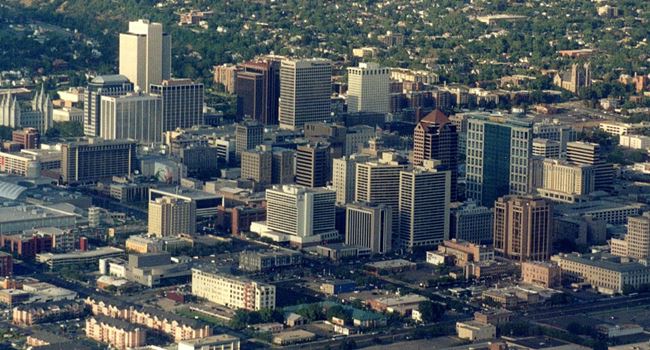Business
BUSINESS ROUNDUP: Electricity tariff hike; rising oil price; See other stories that made our pick

Hello, and welcome. It’s the first Business Roundup in the new year. Civil servants resumed work on Thursday as business activities kicked off after the December break. So, in case you missed out on details, here are the top highlights of events that happened during the week.
Headlines:
Summary:
The Nigerian Electricity Regulatory Commission has approved an increase in electricity tariff by the 11 Electricity Distribution Companies (DisCos) in the country.
The directive on the new tariff regime for different DisCos and category of customers was published on the NERC website on Saturday. Read more.
The nation’s power supply has dropped from 3,993.65 Megawatts (MW) to 3,608 MW on Thursday, indicating a drop of 385.65 MW.
The development, according to a report released on Saturday from the Office of the Vice President, is due to an inadequate gas supply, poor transmission infrastructure and limited distribution facilities. Read more.
Global oil prices skyrocketed by $3 Friday in the aftermath of the US’s assassination of Iranian commander, QasemSoleimani.
There are growing tensions that the development may trigger further escalation in oil prices in the days ahead given Iraq’s threat that “severe revenge awaits the criminals” behind the strike.
Brent crude, the international oil benchmark, peaked at $69.16 (the highest since 17th September 2019) few hours after the killing was announced before it stabilised at $68.81 per barrel about 20:30 West Africa Time. Read more.
Data obtained from the Nigerian Interbank Settlement System (NIBSS) show that the volume of transactions executed by bank customers in the country reached 1.65 million on New Year’s day.
According to the live updates provided, NIBSS Instant Payments (NIP) transactions stood at 1,646,443 as of 3.54pm on 1st January 2020. Read more.
On NSE ROUNDUP: Week-long bullish run pushes Market Capitalisation beyond N13tn mark.
The Nigerian Stock market opened for four trading days this week with the exception of Wednesday being public holiday observed in celebration of New Year’s Day 2020.
The Nigerian bourse posted positive results across its Key Performance Indicators, triggered by bargain hunting activities and rise in investors’ appetite for blue-chip equities.
The bull maintained a firm grip on the market all week long as all the performance parameters witnessed consecutive increase Monday through Friday. The All Share Index (ASI) grew by 2.09% to 26,968.79 basis points from the 26,416.48 recorded last week. Find out more on gains and loses recorded.
Meanwhile, on our editorial Business Review segment;
On Wednesday, January 1, we published our 2019 capital market review, under the headline: How Nigeria’s capital market fared in 2019 and outlook for 2020.
In reviewing the roll of events of the Nigerian bourse, we observed that 2019 was, generally a mixed bag of fortunes and setbacks for the Nigerian capital market. We noted that even though many events that shaped the Nigerian bourse were significantly gloomy, things were not completely negative just as they weren’t all positive.
According to the review, we submitted that governmentpolicies had far-reaching effects on investors’ attitude to the equity market just as myriad corporate actions and a number of other factors contributed in no small measure to how the market fared.
In the review, we specifically mentioned the merger and acquisition that featured as part of highlights in 2019. We equally documented the market capitalisation and enumeratedvarious index that defined the capital market while drawing on results to predict events in the first quarter of 2020. Find review here.
Earlier on Tuesday, the last day in 2019, we published a review on the major economy trends that were hallmarks of the year. We reel(ed) through some of these events, highlighting their immediate implications on the overall economy.
In the review, we noted that Nigeria came a long way in the 12 months of 2019, mentioning how some activities economically bruising some businesses and how the implemention of some unpopular reforms affected the nation.
In an attempt to look back on things that have played out in both government and private sectors, the review observed a series of upbeats on policies which have made it seem 2019 was all about planned changes that tend to directly influence both the macro and micro economics of the country. Read complete review here.
Thanks for joining the roundup this week. See you next week for another serving of Business Roundup. Don’t forget, for the latest news and updates from around the globe, keep reading Ripples Nigeria.
Join the conversation
Support Ripples Nigeria, hold up solutions journalism
Balanced, fearless journalism driven by data comes at huge financial costs.
As a media platform, we hold leadership accountable and will not trade the right to press freedom and free speech for a piece of cake.
If you like what we do, and are ready to uphold solutions journalism, kindly donate to the Ripples Nigeria cause.
Your support would help to ensure that citizens and institutions continue to have free access to credible and reliable information for societal development.






















